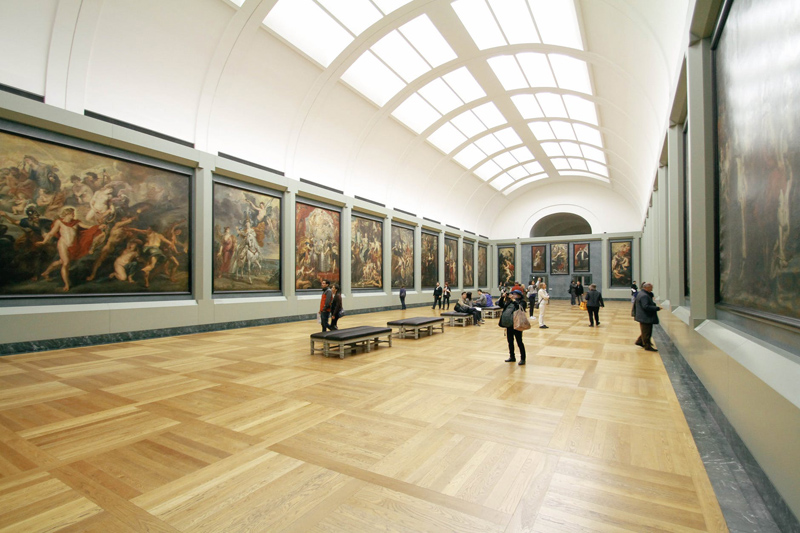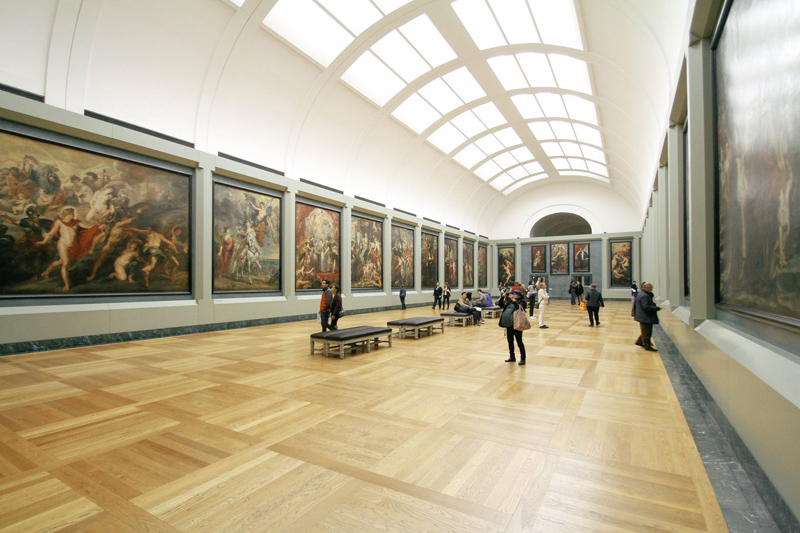How to Be a Good Museum Intern

Landing an internship is a great way to fill up your resume, gain important skills, get college credit, and maybe even open a door to a full time job. But you want to make sure you make the most of your experience as a museum intern.
Here are some things to keep in mind when you start your first internship:
1. Don’t be “too efficient.” Many interns think it is a good idea to get as much work done as possible. Truthfully, it is better to take your time with your projects and make sure you do them correctly. Remember, you are not only there to learn, you are there to help your supervisor get some work done for the museum. Doing it right the first time means you are actually helping.
Also, I wish I had known as an intern how busy my internship supervisor actually was, and that my “efficiency” might not have been appreciated the way I thought it would. Once I started hosting interns, I discovered how difficult it was when they rushed through things and got them done in half the time I expected them to take. Then I had to scramble to find something else for them to do. And discovering careless mistakes in their work later made it even worse!
2. Dress appropriately. Find out what kinds of work you will be doing each day, so you can dress the right way. Ironically, in my own experience as an intern, I often found myself overdressed for the work I was asked to do!
Sometimes you will be helping to paint the galleries or move things in storage that might be dusty and dirty. Other times you might be invited to attend a meeting or follow a tour. It is important to be dressed correctly for both kinds of work. If your internship supervisor, who is probably overworked and underpaid, forgets to mention what kind of work you will be doing, just ask.
3. Know your place in the food chain. It’s great to have suggestions, but it isn’t always appropriate to share them all. Remember, you are there to learn about how a museum works, not to question how things are done. I once had an intern sit in on an interview with the media. Even though she was supposed to be observing, she began to answer the reporter’s questions, even though they were directed at me. There will be plenty of time for media attention in your future! Leave those kinds of things to the museum staff.
4. Treat your internship like a real job. Once you get in the “real world,” you will discover that repeatedly forgetting to set your alarm clock will get you fired. Your internship is a privilege, so treat it as such. Respect the people around you, follow the rules set forth, and be professional at all times.
5. Volunteer for special events. At my museum, I created an internship program that requires our interns to attend two special events while they are here. This allows them to see the “other side” of museum work. A special event looks much different than the regular day-to-day work during the week. Even if you don’t want to work at the special event, you should at least try to attend one during your internship. The staff will appreciate your attendance at an exhibit opening or evening lecture series.
6. Keep a journal of your experiences. I recently found a journal I kept my senior year in college when I was an intern at Wells Fargo Historical Services in San Francisco. I couldn’t believe all of the work I did back then! But the purpose of a journal isn’t just for nostalgia. When you are preparing your resume, your journal will provide details about your experience that you may not remember at first.
7. Speak up if there is something you don’t like or something you want to try. I have had some internships that bored me to tears. I wish I had been able to express my desire to be given a more important project to work on. I’m not suggesting that you march into your supervisor’s office and complain that “cataloging is boring.” I’m saying you should ask about additional projects you could try. Maybe you could write an article for the newsletter or website, or put together a focus tour for the education department. Explain that you’d like to round out your experience by trying some other things.
8. Don’t assume someone will be a reference for you. I’ve been called a few times, completely out of the blue, to provide a reference for an intern I had several years ago. I could barely remember him, let alone specific projects he had worked on! You should ALWAYS ask someone if it is OK to use them as a reference beforehand. If he had called me first, I would have been able to look up his file ahead of time and refresh myself on what he did for me while he was here. I’m always happy to be a reference for an intern, but I don’t like being put on the spot!
9. Resist the temptation to "friend" your supervisor on Facebook. Although a museum can be a casual working environment, don't cross the line between professional and friendship. Your supervisor can find you if he or she is interested in becoming your FB friend. Feel free to add them to your professional contact list on LinkedIn or similar networking sites.
Check out this book for a great overview of the museum field:
Here are some things to keep in mind when you start your first internship:
1. Don’t be “too efficient.” Many interns think it is a good idea to get as much work done as possible. Truthfully, it is better to take your time with your projects and make sure you do them correctly. Remember, you are not only there to learn, you are there to help your supervisor get some work done for the museum. Doing it right the first time means you are actually helping.
Also, I wish I had known as an intern how busy my internship supervisor actually was, and that my “efficiency” might not have been appreciated the way I thought it would. Once I started hosting interns, I discovered how difficult it was when they rushed through things and got them done in half the time I expected them to take. Then I had to scramble to find something else for them to do. And discovering careless mistakes in their work later made it even worse!
2. Dress appropriately. Find out what kinds of work you will be doing each day, so you can dress the right way. Ironically, in my own experience as an intern, I often found myself overdressed for the work I was asked to do!
Sometimes you will be helping to paint the galleries or move things in storage that might be dusty and dirty. Other times you might be invited to attend a meeting or follow a tour. It is important to be dressed correctly for both kinds of work. If your internship supervisor, who is probably overworked and underpaid, forgets to mention what kind of work you will be doing, just ask.
3. Know your place in the food chain. It’s great to have suggestions, but it isn’t always appropriate to share them all. Remember, you are there to learn about how a museum works, not to question how things are done. I once had an intern sit in on an interview with the media. Even though she was supposed to be observing, she began to answer the reporter’s questions, even though they were directed at me. There will be plenty of time for media attention in your future! Leave those kinds of things to the museum staff.
4. Treat your internship like a real job. Once you get in the “real world,” you will discover that repeatedly forgetting to set your alarm clock will get you fired. Your internship is a privilege, so treat it as such. Respect the people around you, follow the rules set forth, and be professional at all times.
5. Volunteer for special events. At my museum, I created an internship program that requires our interns to attend two special events while they are here. This allows them to see the “other side” of museum work. A special event looks much different than the regular day-to-day work during the week. Even if you don’t want to work at the special event, you should at least try to attend one during your internship. The staff will appreciate your attendance at an exhibit opening or evening lecture series.
6. Keep a journal of your experiences. I recently found a journal I kept my senior year in college when I was an intern at Wells Fargo Historical Services in San Francisco. I couldn’t believe all of the work I did back then! But the purpose of a journal isn’t just for nostalgia. When you are preparing your resume, your journal will provide details about your experience that you may not remember at first.
7. Speak up if there is something you don’t like or something you want to try. I have had some internships that bored me to tears. I wish I had been able to express my desire to be given a more important project to work on. I’m not suggesting that you march into your supervisor’s office and complain that “cataloging is boring.” I’m saying you should ask about additional projects you could try. Maybe you could write an article for the newsletter or website, or put together a focus tour for the education department. Explain that you’d like to round out your experience by trying some other things.
8. Don’t assume someone will be a reference for you. I’ve been called a few times, completely out of the blue, to provide a reference for an intern I had several years ago. I could barely remember him, let alone specific projects he had worked on! You should ALWAYS ask someone if it is OK to use them as a reference beforehand. If he had called me first, I would have been able to look up his file ahead of time and refresh myself on what he did for me while he was here. I’m always happy to be a reference for an intern, but I don’t like being put on the spot!
9. Resist the temptation to "friend" your supervisor on Facebook. Although a museum can be a casual working environment, don't cross the line between professional and friendship. Your supervisor can find you if he or she is interested in becoming your FB friend. Feel free to add them to your professional contact list on LinkedIn or similar networking sites.
Check out this book for a great overview of the museum field:
You Should Also Read:
Finding a Museum Job in a Bad Economy
BOOK REVIEW -- Careers, A Practical Guide
Interview Tips for Finding a Museum Job

Related Articles
Editor's Picks Articles
Top Ten Articles
Previous Features
Site Map
Content copyright © 2023 by Kim Kenney. All rights reserved.
This content was written by Kim Kenney. If you wish to use this content in any manner, you need written permission. Contact Kim Kenney for details.



